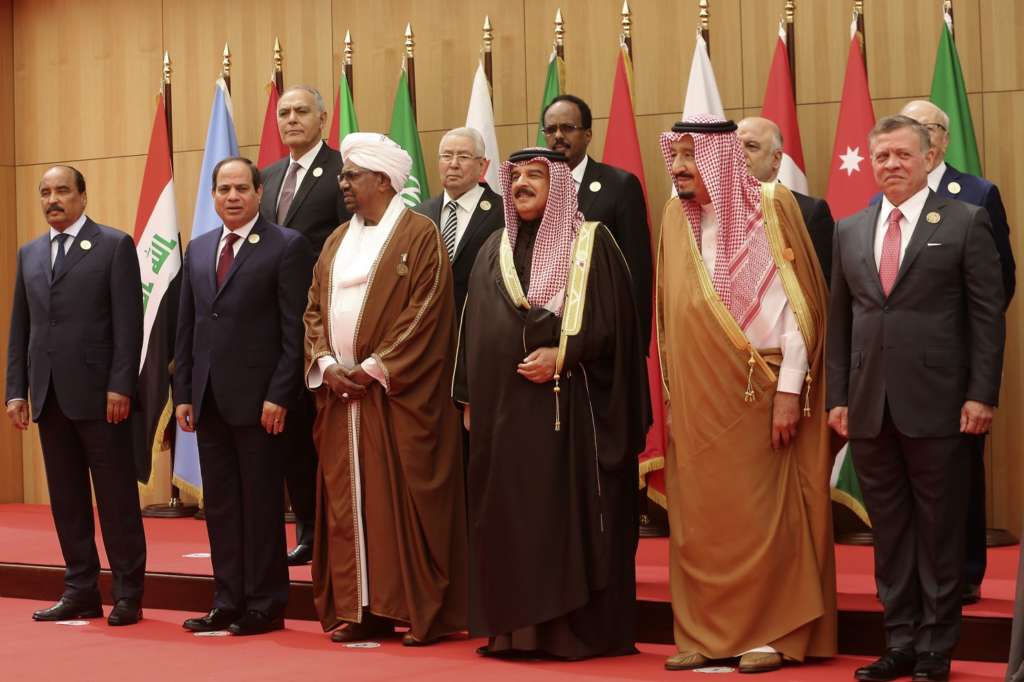Dead Sea (Jordan) – The 28th Arab summit meeting concluded on Wednesday at the Dead Sea with an overwhelming support for the Palestine cause and an agreement to adhere to political solutions to resolve crises hitting the Arab world, especially in Yemen, Syria and Libya.
Arab leaders also voiced their strong rejection to Iran’s interference in the region.
Described as “historic” in terms of state leaders’ attendance, the summit also saw mending ties between several Arab countries and unifying stance against the “Judaization” of Jerusalem.
A joint Arab declaration issued at the outset of the meeting called on the international community to implement UN Security Council Resolution 2334 of 2016, which describes Israeli settlements as illegal and a flagrant violation of international law.
It added that Israeli settlement activities represent a stark violation of international law and a key obstacle to peace.
The Arab leaders stressed their continued efforts for the resumption of serious and effective peace talks between the Palestinians and the Israelis.
They also voiced their adherence to the Arab identity of occupied East Jerusalem and renewed their commitment to the 2002 Arab Peace Initiative.
They called for the release of all prisoners and resolving the issue of refugees in line with international resolutions.
On the Syrian issue, the declaration highlighted the necessity to find a political solution that ends the conflict and preserves the unity of the Syrian people and the country’s territorial integrity.
Arab leaders decided to task a ministerial committee to set mechanisms to assist Syria’s neighboring countries hosting refugees.
Regarding Iraq, Arab leaders called on Turkey to immediately withdraw its forces from Iraqi territories, describing their presence as a violation of the Arab country’s sovereignty and a threat to pan-Arab security.
They also voiced support to Iraq’s efforts to eradicate ISIS and all forms of terrorism.
On Yemen, the Arab declaration backed the legitimate government, stressing that any solution to the crisis should be based on the Gulf Initiative, the outcome of the National Dialogue Conference and Security Council Resolution 2216.
The declaration rejected all forms of Iranian interference in Arab countries’ internal affairs.
It also condemned attempts to destabilize security and instigate sectarian violence, including practices that violate the principles of good neighborly relations, the rules of international relations, the principles of international law and the Charter of the United Nations.
The Summit declaration stressed the continued fight against terrorism and the elimination of its causes within a “comprehensive strategy”, which promotes the values of democracy and respect for human rights and seeks to eradicate ignorance and exclusion in frail environments in which terrorism thrives.
During the summit, it was decided that Saudi Arabia would host the upcoming 29th Arab summit, as the UAE apologized for not being able to.
The Arab League Charter gives the rotating presidency of the summit in accordance with the Arabic alphabetical order of member countries.
